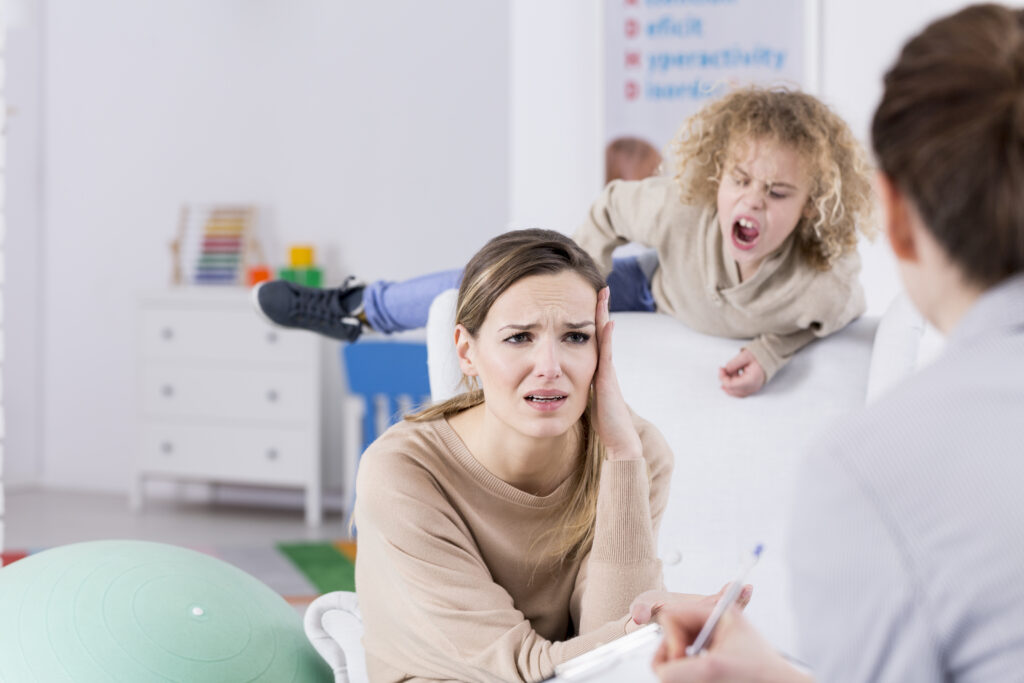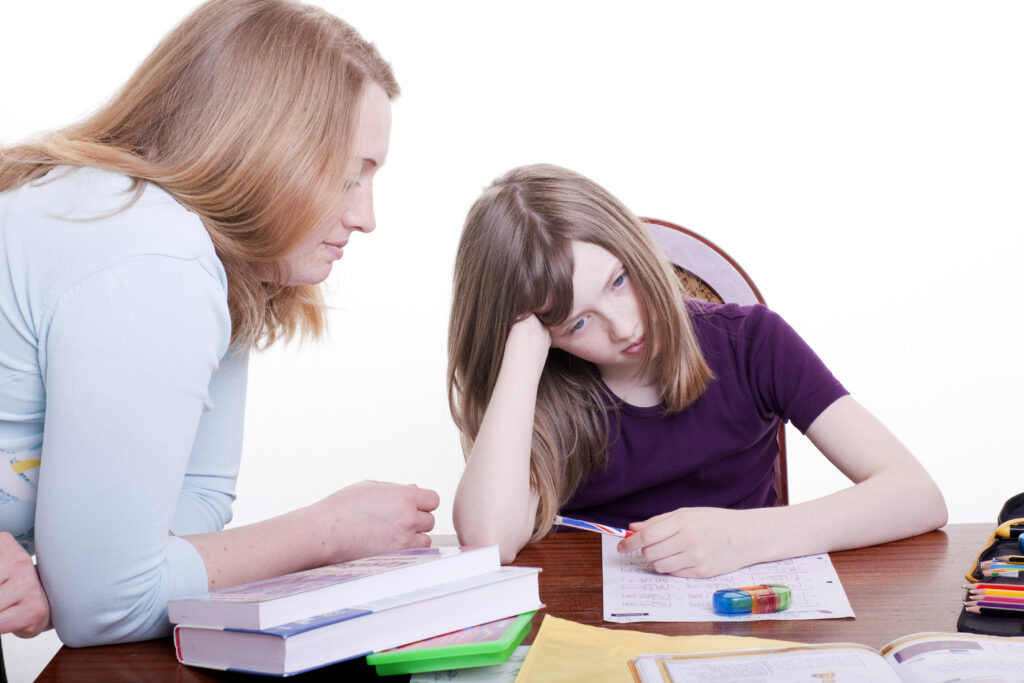
The topic "ADHD symptoms in children" is on everyone's lips. On the one hand, it is positive that this extremely complex disorder is receiving greater attention. On the other hand, there is a risk that even a somewhat lively child is wrongly classified as an ADHD case by parents, educators and teachers. This can certainly be observed in everyday life.
ADHD symptoms in children can manifest themselves in different ways. In the following article, we would like to give you an overview of the most common signs. Basically, the earlier the disorder is recognized and the child is supported accordingly, the better the development prognosis. With the help of the right therapeutic measures, the affected children can be helped effectively.
ADHD is the abbreviation for attention deficit hyperactivity disorder. Children with this behavioral disorder first become noticeable at the latest at elementary school age. As the name suggests, affected children have difficulty concentrating on one thing for long periods of time. They usually appear restless and over-excited. In common parlance, there is also talk of the typical "fidgety child".
Interesting to know: Not only children suffer from ADHD. Adolescents and adults can also be affected. However, in many cases the symptoms improve with advancing age.
As already mentioned, a child with ADHD is often conspicuous for his restlessness. The child does not manage to concentrate persistently on an activity. This is true in play as well as in learning at school. In addition, a large part of the Children with ADHD hyperactive. Sitting still is almost impossible for them. They have to be constantly on the move.
Furthermore, they often interrupt other people in conversation or tend to act impulsively, the consequences of which they cannot assess. This includes violent tantrums or risky behavior, e.g. running across a red light. Aggression towards parents, educators or other children is also not uncommon.
The restlessness that drives the children can hardly be influenced from the outside. If the caregivers make an effort to calm the child, the effect lasts only a few minutes. It seems that after a short time the children have already forgotten that they have been admonished to be quiet.
The Behavioral problems are not limited to one area of life or specific situations, but run like a thread through the child's entire daily life. It is important to know, however, that the behavior pattern can vary from child to child.
There are certainly small patients with ADHD who can concentrate on an activity, provided they like it. Also, the typical restlessness and impulsivity are not pronounced to the same degree in all children. So while Attention Deficit Hyperactivity Disorder puts a lot of stress on some families, others have little or no distress.

ADHD symptoms in children can be divided into three core areas:
The following behaviors may indicate attention deficit hyperactivity disorder:
Important: The above symptoms can may indicate ADHD, but they do not necessarily have to. If only a few characteristics apply, it is possible that your child simply has a hot temper. This is not a disease! Please do not immediately label behaviors that you as a parent do not like as ADHD!
When it comes to the topic of "ADHD symptoms in children", most people have internalized the image of the fidgety child. However, there are definitely cases in which this core symptom is missing. This means that even a quiet child can suffer from ADHD. Sometimes, however, it takes longer for the correct diagnosis to be made. In technical terminology, the term ADHD of the primary inattentive type the speech.
Affected children often appear very dreamy, as if they were living in their own world. They try to behave as inconspicuously as possible and react to conflicts with withdrawal. Often the children suffer additionally from Fears and feelings of guilt. They cry a lot and frequently. In the school area, it is noticeable that tasks are completed very slowly.
These children urgently need empathetic support and targeted encouragement. However, since it usually takes a long time for quiet children to be diagnosed with ADHD, valuable time is sometimes lost. If you recognize your child in the above description and there is also great suffering on the part of the child, you should seek professional advice.
Children with pronounced attention deficit hyperactivity disorder often have difficulty following rules. This is not meant maliciously by them, but they are simply unable to implement them. This leads to massive problems in everyday life, e.g. in kindergarten or at school. But the potential for conflict also increases within the family.
The inability to implement rules often results in serious disputes with educators, parents as well as with peers. Children suffering from ADHD also tend to provoke other people and blame them for their own failures. It goes without saying that the children do not necessarily make themselves popular with these behaviors.
ADHD is consequently also a great burden for those affected themselves. The children feel that they are considered a "problem case" and that no one wants to be friends with them. The frustration about this intensifies the sometimes aggressive and restless behavior. The children become insecure and suffer from low self-esteem. The task of parents and teachers is to intervene in time.
ADHD symptoms in children: When do they first appear? Even if the causes are not yet fully understood, science is nevertheless in agreement that ADHD is a early childhood brain dysfunction is involved. This means it is either congenital or develops in early infancy.
Most parents and teachers notice at elementary age that the child does not behave in an age-appropriate manner in terms of the ability to concentrate and / or impulsivity. Sometimes, however, the symptoms show up clearly already at kindergarten age. At the latest before the age of 12, the "ADHD symptoms children" appear concisely. A diagnosis only in the teenage age is possible, but rare.

Just like the severity of the behavioral disorder, the prognosis also varies from child to child. However, it is striking that almost all children experience a significant worsening of symptoms after starting school. This is due to the fact that an extremely high level of concentration, calmness and endurance is suddenly demanded of the children, which they are not able to cope with.
Children with ADHD are in most cases of average intelligence or may even be gifted, yet school problems often develop. Failures lead to discouragement. As a result, those affected quickly lose the joy of learning, which leads to a drop in grades. At home, homework is often a daily struggle.
With the onset of puberty, hyperactivity usually decreases a little. Sometimes the tendency to impulsive actions and the attention deficit remain or improve only slightly. Even in adulthood, some sufferers still have problems, e.g. at work or in relationships. However, there are also patients whose symptoms are significantly reduced in adulthood.
ADHD symptoms in children: This search query is used more frequently than average by concerned parents when they are worried about their offspring's health. According to the Federal Ministry of Health around 2 - 6 % of all children in Germany suffer from ADHD.
ADHD is therefore certainly a current health issue in childhood. However, the prevalence is not as high as it often appears. If you notice any abnormalities in your child, it makes sense to make an appointment with a child psychologist. He or she can use a special questionnaire to test whether your child actually suffers from ADHD.
Keep in mind, however, that not every restless and erratic child is necessarily ill. Some children, like some adults, simply have an impulsive nature. If there is no ADHD, however, the children are able to follow simple rules. One speaks of a suspected diagnosis only when the children show at least six different symptoms of ADHD. in all areas of life show



